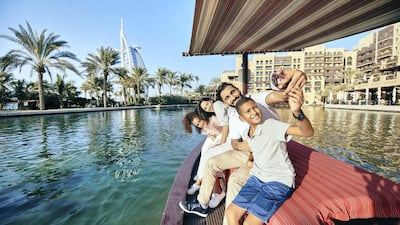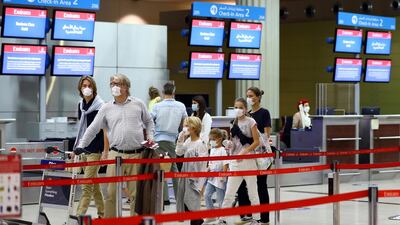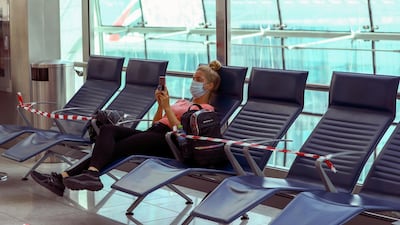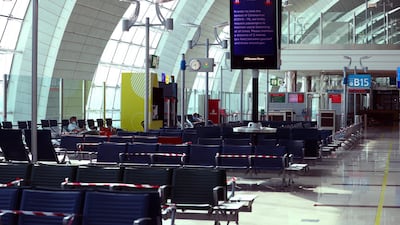Dubai is aiming to reopen for tourists as early as July as it looks to gradually come out of a lockdown due to the coronavirus pandemic that disrupted tourism and air travel, according to its tourism chief.
The return of tourism will happen in a staggered approach and may be pushed back until September, depending on when other countries ease travel restrictions, Helal Al Marri, director general of Dubai’s Department of Tourism and Commerce Marketing told Bloomberg TV on Tuesday.
"The thing about this current scenario is it’s a global question: many airports internationally remain closed and it’s really about the bilateral discussions that are under way to have a coordinated approach to the reopening," Mr Al Marri said.
"We’re quite concerned about the timeline, that’s the main risk: is it going to be July when things open up? Is it going to be September? We just need to make sure we’re ready if things come earlier than expected."
Dubai, a regional tourism and business hub, attracted 16.73 million travellers last year. The sector contributed 11.5 per cent to the emirate's gross domestic product.
The emirate suspended passenger arrivals in March to contain the spread of Covid-19 but has started to gradually relax restrictions as the pandemic is controlled.
Last week Dubai announced it would partially reopen its shopping malls, a major tourist draw, amid a loosening of lockdown restrictions aimed at curbing the virus.
Dubai's tourism is currently on pause and the number of arrivals to the emirate has dropped to zero due to the pandemic, which had a huge impact, Mr Al Marri said.
The Dubai government has introduced a series of measures aimed at supporting its critical tourism sector during the Covid-19 crisis, including reducing or waiving fees, such as a 50 per cent cut on municipality fees.
The UAE's central bank rolled out an economic stimulus package to mitigate the impact of the coronavirus on the private sector, which has helped the tourism sector through penalty-free loan rescheduling over a longer period of time and lower interest rates, he said.
Travellers' behaviour is also expected to change in the post-coronavirus era, with more focus on "health and hygiene across destinations", less group travel and more independent travellers who are likely to make late bookings, he said.
The focus on hygiene and health will translate into additional costs for hotels, he added.
The tourism chief ruled out a possibility of government intervention even amid an oversupply of hotel rooms and said it is not up to the Dubai government to restrict the number of hotels constructed.
The sector "is not interested in the government controlling supply or pricing of hotel rooms. Investors in hotels definitely have expertise and experience to make their own decisions," he said.
The UAE on Tuesday announced 541 new coronavirus cases, taking the total to 11,380 cases, 2,181 recoveries and 89 deaths.















